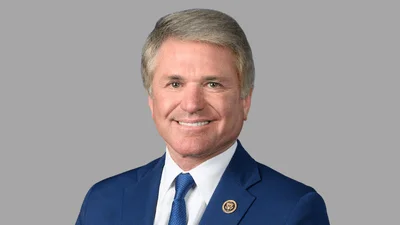2016 mark: $35.403 billion
2016 budget request: $36.036 billion
2015 enacted: $34.202 billion
The Committee recommendation provides:
* $1.66 billion for Energy Efficiency and Renewable Energy, which is $266 million less than the 2015 enacted level and $1.065 billion less than the President’s request.
* $5.1 billion for the Department of Energy Office of Science, which is $29 million more than the 2015 enacted level and $239.8 million less than the President’s request.
* $280 million for the Advanced Research Projects Agency - Energy (ARPA-E), which is the same as the 2015 enacted level and $45 million less than the President’s request.
* $187.5 million for activities to modernize the electricity grid, $40 million more than 2015 and $82.6 million below the request.
* $5.9 billion for environmental cleanup activities, which is $38.7 million more than the 2015 enacted level and $91.7 million more than the President’s request.
* $8.7 billion for Weapons Activities, which is $526 million more than the 2015 enacted level and $133.9 million less than the President’s request.
* $1.9 billion for Nuclear Nonproliferation, which is $291 million more than the 2015 enacted level and $32.7 million less than the President’s request.
* $1.3 billion for Naval Reactors, which is $86.4 million more than the 2015 enacted level and $55.1 million less than the President’s request.
* $5.6 billion for the Army Corps of Engineers, which is $142.3 million more than the 2015 enacted level and $864.8 million more than the President’s request.
** Of those funds, $1.18 billion is for Harbor Maintenance Trust Fund projects, which is $73 million more than the 2015 enacted level, $75 million less than the target established by the Water Resources Reform and Development Act (WRRDA), and $263 million more than the President’s request.
* $1.1 billion for water resources projects within the Department of Interior, which is $35.5 million less than the 2015 enacted level and $1.4 million less than the President’s request.
The bill includes three controversial riders hindering the Corps of Engineers ability to prevent water pollution.
* Prohibiting the Corps of Engineers from changing the definition of “fill material," an interest of mountaintop mining companies;
* Prohibiting the Corps of Engineers from clarifying the definition of navigable waters as directed by the Supreme Court of the United States; and
* Prohibiting the Corps of Engineers from requiring permits for certain agricultural practices.
* The bill includes a controversial rider allowing guns to be carried on all Corps of Engineers lands.
The bill includes a new rider prohibiting funds to develop a National Ocean Policy, which would prevent federal agencies from coordinating with each other on fishing regulations, port and harbor issues, and many other maritime challenges.
Source: U.S. Department of HCA









